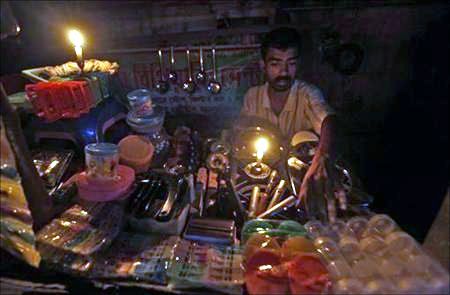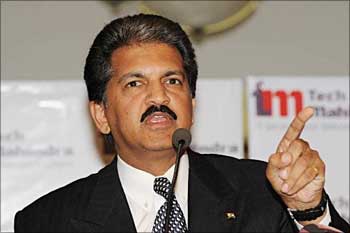 Seven major state power distribution utilities, identified by the central government for financial restructuring, have failed to increase their tariff considerably to improve their financials.
Seven major state power distribution utilities, identified by the central government for financial restructuring, have failed to increase their tariff considerably to improve their financials.
These utilities have been reeling under a cumulative loss of about Rs 30,000 crore (Rs 300 billion).
The states - Rajasthan, Haryana, Tamil Nadu, Uttar Pradesh, Andhra Pradesh, Bihar and Jharkhand - hiked the electricity rates in the range of four per cent to 18 per cent in 2013-14.
This is less than last year's band of 18 per cent to 35 per cent. The Centre's financial restructuring plan (FRP) required the states to meet the criteria of considerable rate hike and measures to cut losses on their account books.
But these states have failed to do so. Thus, they failed to turn around the financial health of the discoms. The state governments did not go for massive rate hikes for political reasons, as the states were either poll-bound or were looking at bypolls in the near future.
Power sector experts opined what made the path of achieving the goal of 24x7 power supply tougher is the poor financial health of discoms across the country. The dues of power distribution utilities across the country to the power suppliers currently stand at Rs 15,700 crore.
Piyush Goyal, minister of state for coal, power and renewable energy, has on several occasions, even in his 100-day address, said the government's goal was 24x7 quality power supply for all.
While the minister has addressed the problem of coal supply, the central government is awaiting participation of states in transmission-related issues.
 While the power generation in the country overruns demand at 29,500 Mw, the country suffered a power supply deficit of 18,000 Mw during the peak demand season from April to August.
While the power generation in the country overruns demand at 29,500 Mw, the country suffered a power supply deficit of 18,000 Mw during the peak demand season from April to August.
NTPC, the country's largest thermal power producer, on several occasions has said transmission constraints lead to power supply crunch.
Transmission and distribution losses run up to 25 per cent of the supply. When losses such as power thefts are also accounted for, then it escalates to 35 per cent.
High demand of power during the prolonged summer in the month of August made spot power price touch a five-year high of Rs 10 per unit.
Northern and western grids, which are also facing power generation crisis with around 13,000 Mw shut due to shortage of coal supply, flashed concerns of states overdrawing power.
This could have a cascading effect on the grid and increase the dues of discoms to power generators. The power blackout that happened in July 2012 was because there was overdrawing of power in the Northern Grid.










 © 2025
© 2025